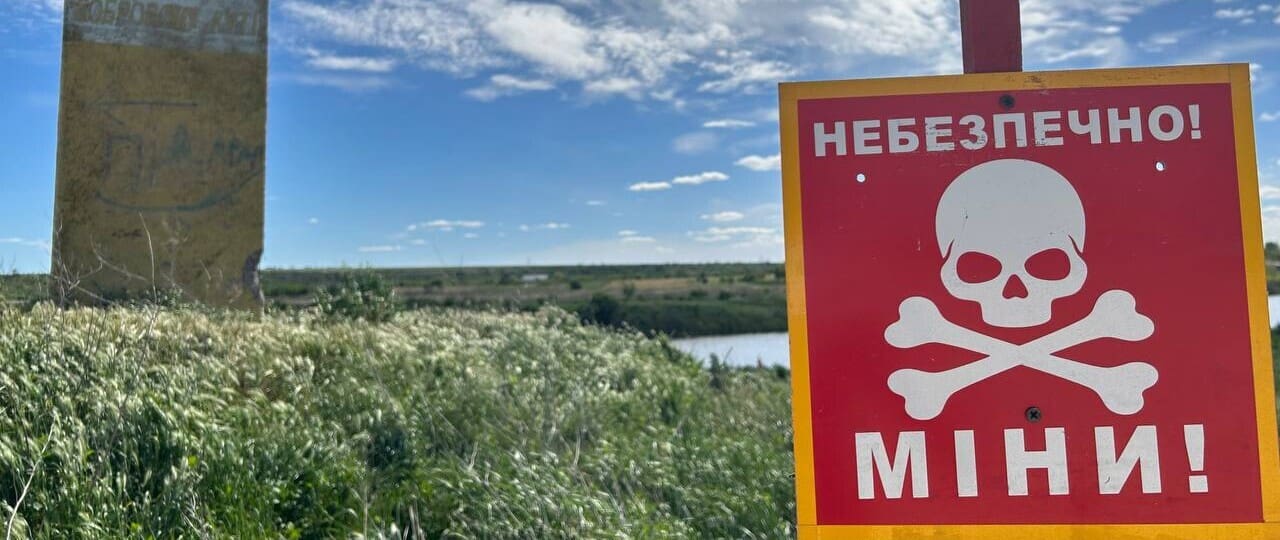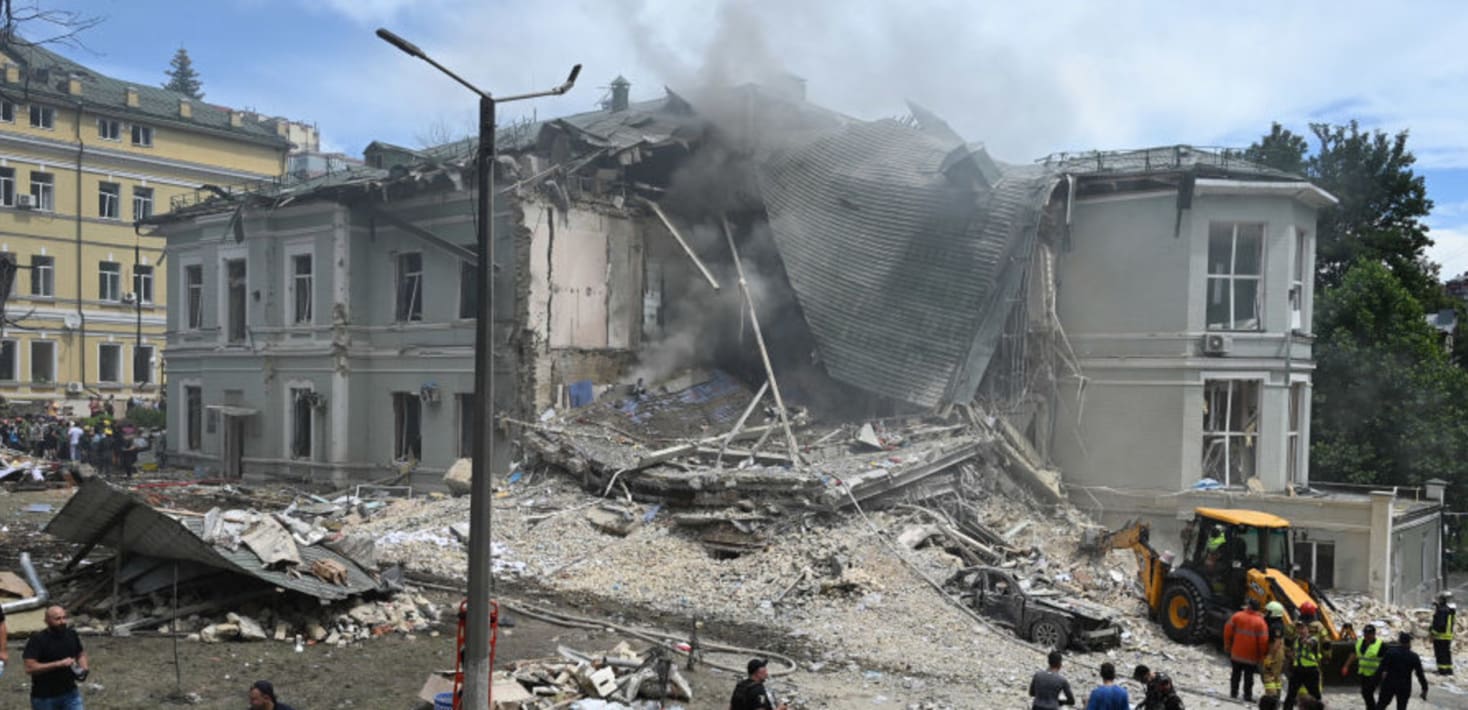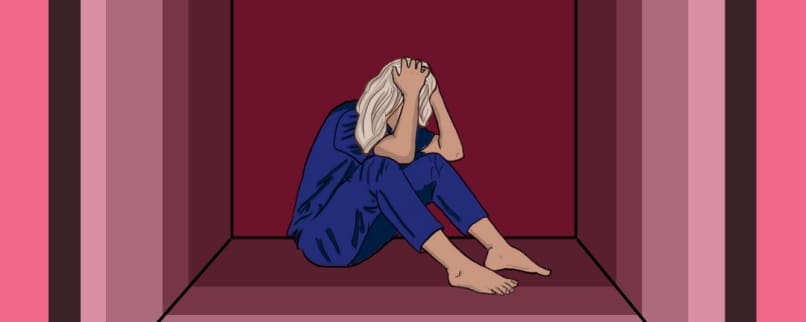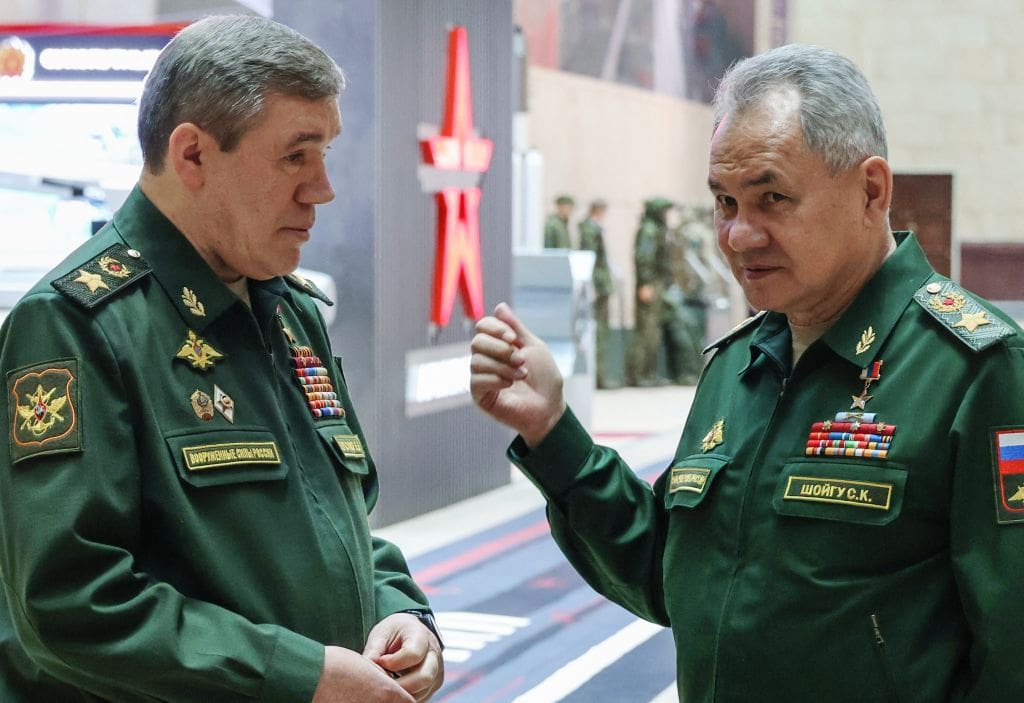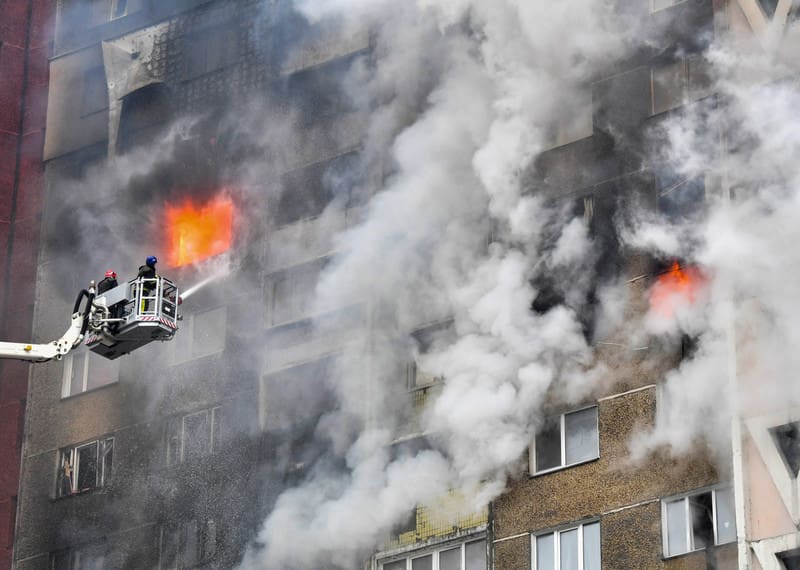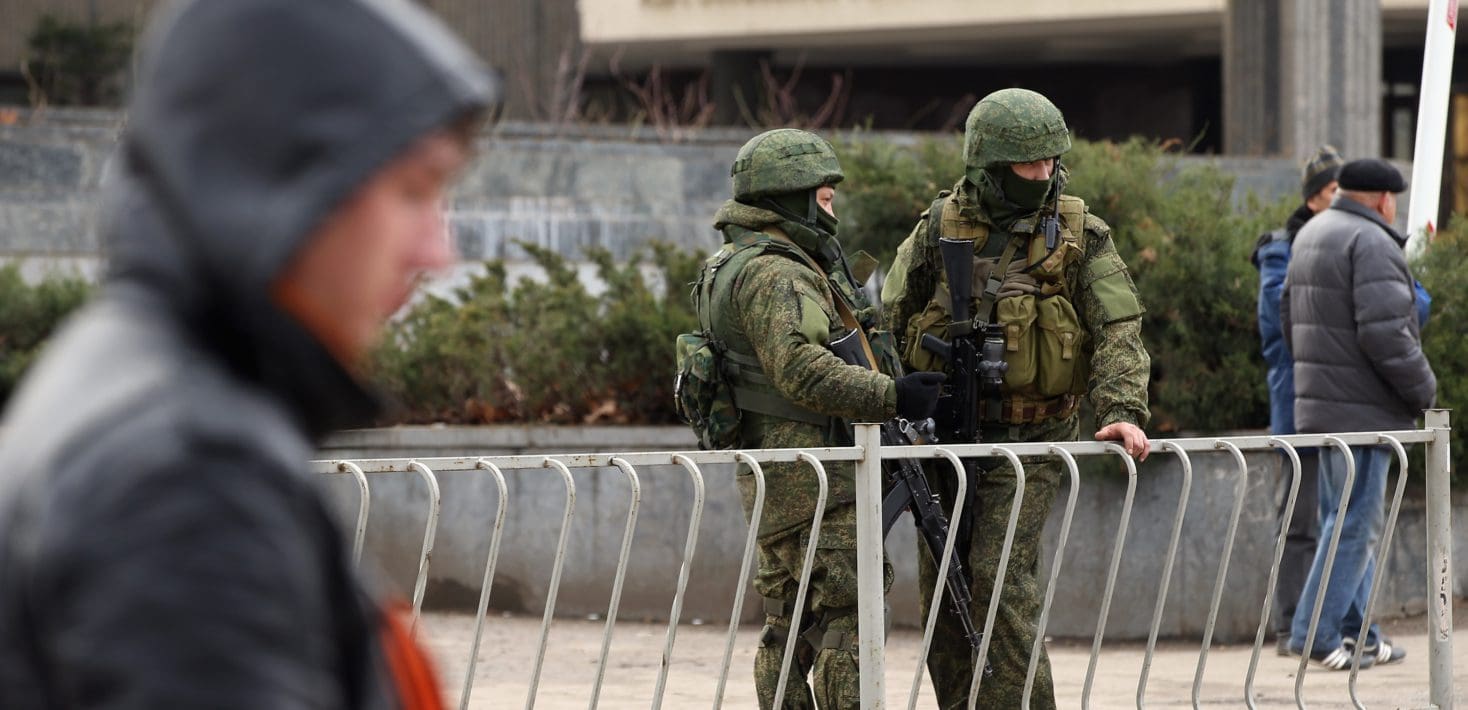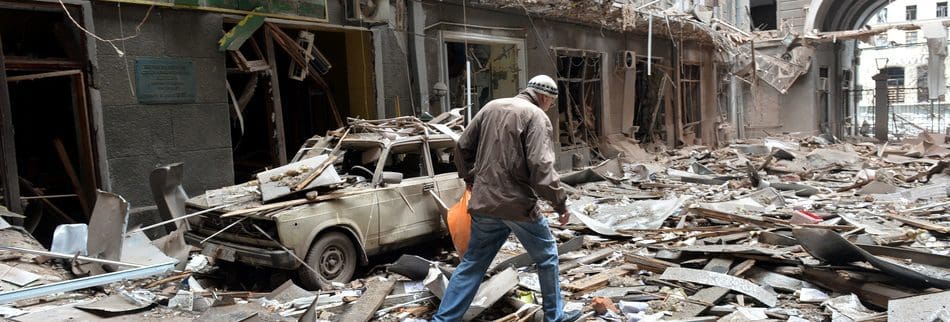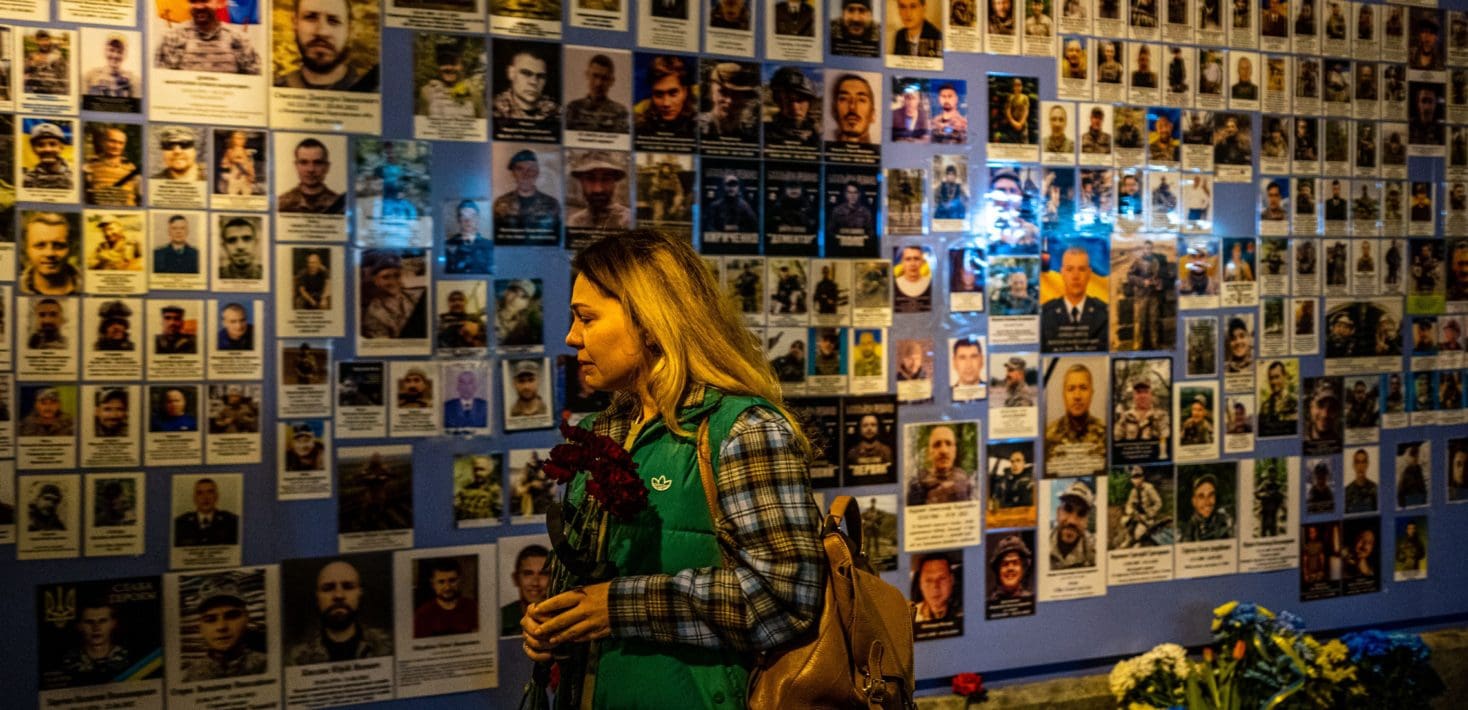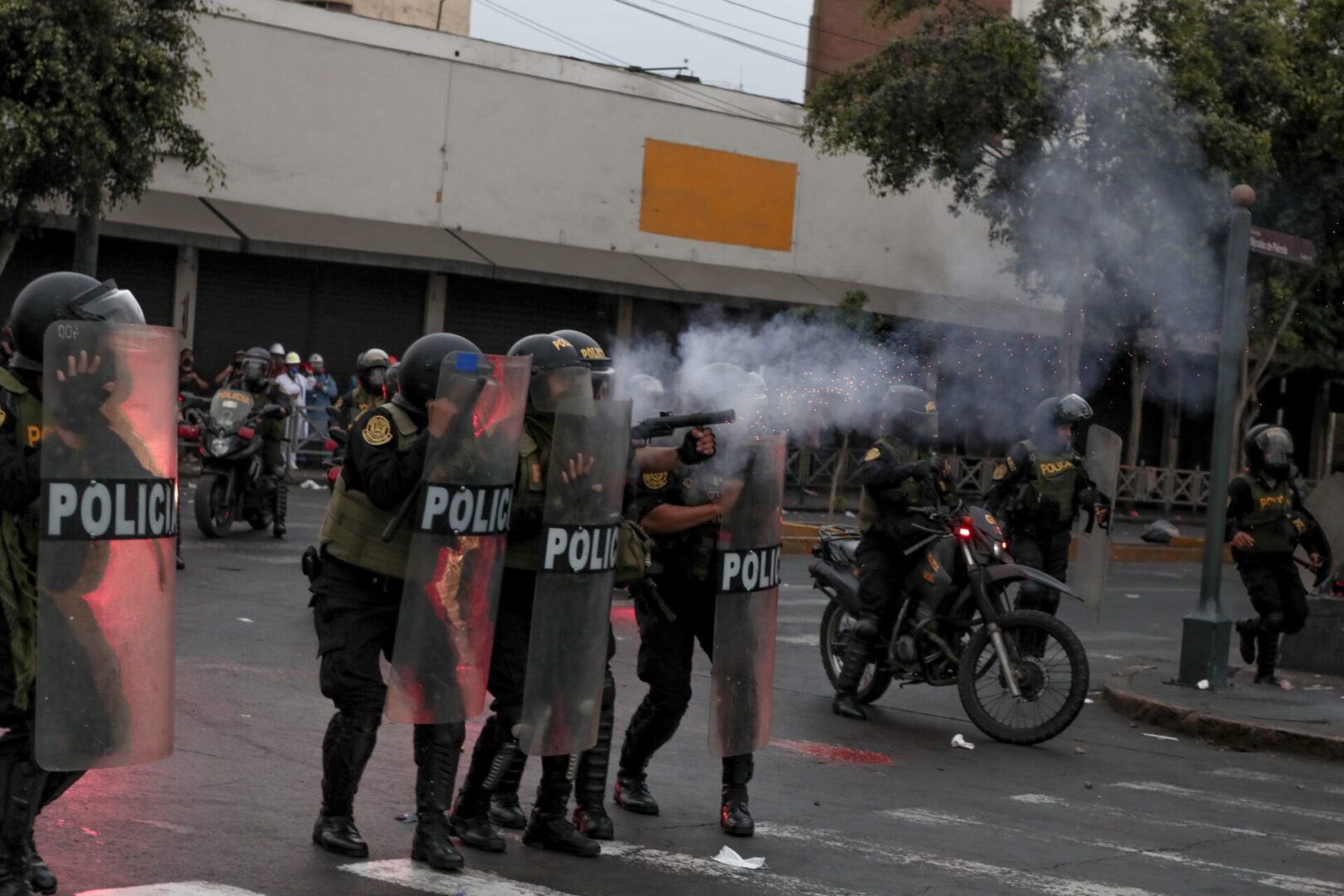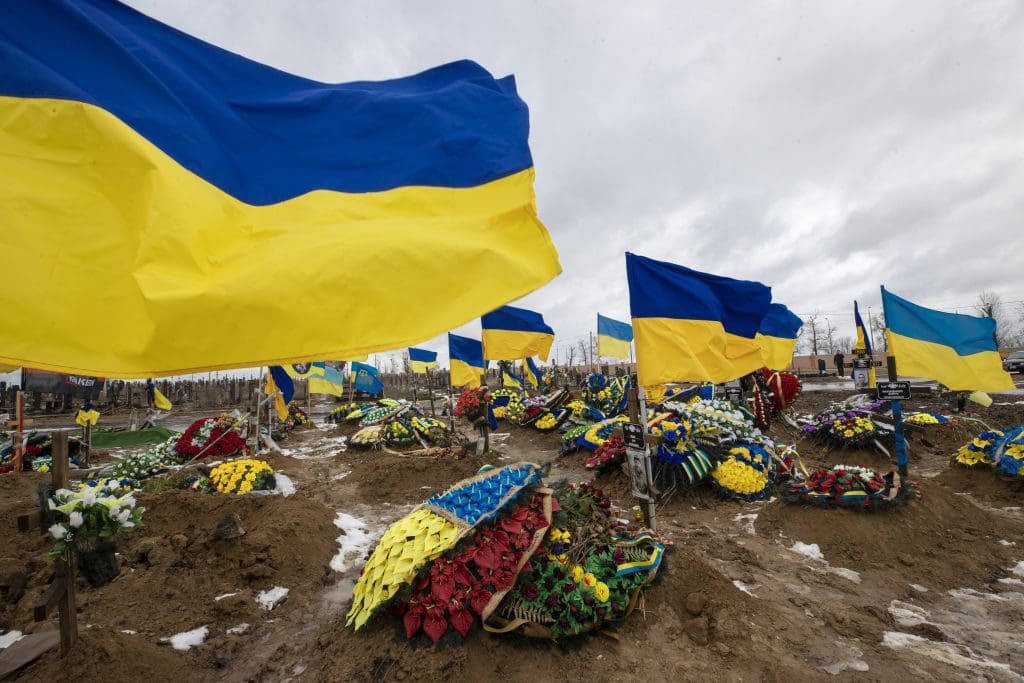The following information is based on the Amnesty International Report 2022/23. This report documented the human rights situation in 149 countries in 2022, as well as providing global and regional analysis. It presents Amnesty International’s concerns and calls for action to governments and others.
OVERVIEW
Russia’s full-scale invasion of Ukraine in February was a violation of the UN Charter and an act of aggression, a crime under international law. Russian forces conducted indiscriminate attacks resulting in thousands of civilian casualties, amid mounting evidence of other crimes including torture, sexual violence and unlawful killings. Attacks on civilian infrastructure also led to violations of the rights to housing, health and education. A new law on the media granted excessive powers for the Ukrainian state media regulator. Promised new legislation on civil partnerships appeared to include same-sex relationships. The war exacerbated existing inequalities for women, amid a reported increase in gender-based violence. The crackdown on dissent and human rights defenders in Russian-occupied Crimea continued.
Background
On 24 February, Russia launched a full-scale military invasion of Ukraine, including from neighbouring Belarus. Russian forces reached the outskirts of the capital, Kyiv, and made gains in the east and south of the country before being pushed back amidst fierce fighting. By the end of the year, Russian forces had retreated from much of the newly-captured territories but retained control of substantial territory in the east, south-east and south of Ukraine, including Crimea. The war had an immense impact on Ukraine’s civilian population
The UN recorded close to 18,000 civilian casualties in 2022 including at least 6,884 deaths, mostly caused by the use of explosive weapons with wide-area effects. Actual figures were likely to be significantly higher.
Almost 8 million Ukrainians, mostly women, children and older people, left the country, creating the largest refugee population in Europe since the Second World War. Almost 7 million were estimated to be displaced within the country.
In September, Russia announced the illegal annexation of four partially occupied regions of Ukraine. Ukraine’s public, political and civilian life was dominated by the war. Martial law was declared on 24 February and remained in place at the end of the year. The Ukrainian authorities took several steps to reduce Russia’s media, cultural and political influence within the country, including blocking various Russian online resources. At least 11 political parties were banned for their alleged seditious activities and ties to the Russian authorities.
One of the two principal Orthodox churches, the Ukrainian Orthodox Church (UOC), which, unlike the Orthodox Church of Ukraine, had retained formal subordination to the Moscow Patriarchy, amended its statutory documents in May to remove all respective subordination clauses, although its relationship with Moscow remained ambiguous. Nonetheless, in December, the authorities committed to banning its activities in Ukraine, and opened an investigation into its allegedly subversive activities, carrying out raids on churches and monasteries across the country.
The World Bank predicted that the Ukrainian economy would contract by around 45% and reported a tenfold rise in the country’s poverty rate, as nearly half a million children were pushed into poverty. In December, a World Bank official cited latest estimates of the cost of reconstruction as EUR 500 – 600 billion. The unemployment rate exceeded 30% at the end of the year.
key issues
Russia’s invasion of Ukraine triggered an extensive human rights, humanitarian and displacement crisis. Russian forces conducted indiscriminate attacks, using weapons with wide-area effects which resulted in thousands of civilian casualties.
On 30 September, a Russian missile strike on a humanitarian convoy in Zaporizhzhia killed at least 25 civilians. Russian forces also occupied large swathes of territory, and denied civilians access to humanitarian aid. As Ukraine retook control of some territories, mounting evidence emerged of unlawful deprivation of liberty, torture, sexual violence, unlawful killings and other crimes by Russian forces.
In Russian-occupied territories, Russian authorities disabled or disrupted Ukrainian communication channels, including by replacing mobile networks with their own, and persecuted local residents who reported on attacks in the occupied territories, including through abduction, unlawful imprisonment and torture. There were reports of extrajudicial executions of civilians. In Bucha, for example, Amnesty International investigated five apparent extrajudicial executions carried out during the Russian occupation in March
Due to the restrictions on communication, and lack of access for independent media and monitors into Russian-occupied territories, reports of military strikes attributed to Ukrainian forces, including those resulting in casualties and damage to civilian infrastructure, were difficult to verify.
Russian officials and state-controlled media made regular allegations about unlawful Ukrainian strikes, some of which were shown to be false. The Russian authorities blamed Ukrainian forces for the destruction of the theatre in Mariupol on 16 March, despite compelling evidence that this building, which was sheltering hundreds of civilians, was deliberately targeted by the Russian air force.
Prisoners of war were subjected to ill-treatment and possible extrajudicial execution. Russian forces and their proxies mostly denied humanitarian access to prisoners they held. In August, the UN announced a fact-finding mission into the July attack in Olenivka that killed dozens of Ukrainian prisoners of war held by Russian proxy forces, but the mission was unable to deploy to the site. Ukraine denied carrying out the attack, and claimed it was a deliberate killing of prisoners by their captors.
Photos and videos circulating on social media depicted torture and other ill-treatment of prisoners, and possible extrajudicial executions, which would constitute a war crime. Videos emerged in July showing a Russian soldier castrating a Ukrainian captive before killing him. Reportedly, Russian security services questioned the suspected perpetrator and dismissed the video as fake, although it was independently verified by open-source investigators. Ukraine faced calls to investigate the abuse and killing of prisoners. In November, videos and photos were published on social media of a possible extrajudicial execution, in which at least 10 surrendered Russian soldiers appeared in one video to be alive and being held face down on the ground, while a later aerial video showed them dead. Ukraine opened an investigation but did not report its findings before the year’s end.
In violation of international humanitarian law, in June, a separatist “court” in Russian-occupied Donetsk “convicted” three members of the Ukrainian regular forces (one Moroccan and two British) of being foreign mercenaries and taking part in hostilities and “sentenced” them to death.
In July, Russian authorities claimed they had already charged 92 Ukrainian prisoners of war with “crimes against peace and humanity”, and planned to try them at an “international tribunal” in occupied Mariupol, thereby depriving prisoners of war of their fair trial rights. Forced displacement In Mariupol and elsewhere, Russian authorities forcibly transferred and deported civilians from occupied areas of Ukraine in what amounted to war crimes and likely crimes against humanity.
This was accompanied by a screening process, known as “filtration”, during which some civilians were subjected to torture and other ill-treatment, including being beaten, electroshocked and threatened with execution. Others were denied food and water, and held in dangerous and overcrowded conditions. In some cases, children were separated from their parents. After being forcibly transferred or deported, older people, people with disabilities, and unaccompanied, separated or orphaned children often lacked the financial means, necessary support or the legal right to leave Russia or Russian-occupied areas.
On 2 March, the ICC Prosecutor announced an investigation into the situation in Ukraine, which still had not ratified the Rome Statute, after receiving referrals from 39 ICC states parties. The investigation was ongoing at the year’s end. On 4 March, the UN Human Rights Council voted to establish an independent international commission of inquiry.
On 17 November, a Dutch court convicted in their absence two Russian and one Ukrainian nationals affiliated with so-called “Donetsk People’s Republic” of murdering all 298 passengers and crew of the Malaysian Airlines MH17 flight that was shot down over eastern Ukraine in July 2014.
Russia’s war of aggression imposed immense, deliberate hardship on the Ukrainian people, resulting in a dramatic deterioration in their standards of living, housing, health and education.
In the second half of the year, Russia increased its attacks on essential civilian infrastructure, including power and water installations, adding significantly and intentionally to the economic hardship. As colder months approached, missile and drone strikes seriously damaged at least 40% of Ukraine’s energy infrastructure, regularly causing massive blackouts. These regularly and simultaneously deprived several million Ukrainians of electricity, disrupted critical services, including healthcare as well as education, and impacted the heating and water supply in freezing temperatures. At times, 80% of the residents of Kyiv were deprived of running water.
According to the Kyiv School of Economics, over 126,700 houses and 16,800 apartment buildings around the country had been destroyed or severely damaged by the end of October. According to the Ukrainian Ministry of Health in December, 1,100 healthcare facilities had been damaged and 144 destroyed.
In July, two laws were adopted that undermined labour rights and were estimated to affect around 70% of the Ukrainian work force. They were presented by the Ukrainian authorities as necessary war-time measures. Various similar provisions had been proposed in 2020-21 but withdrawn in the face of trade union opposition and criticism from the ILO. The first law legalized zero-hours contracts for up to 10% of a company’s employees, subject to a minimum guaranteed 32 paid hours a month. The second exempted companies with no more than 250 workers from various protections set out in the Labour Code, including collective agreements previously negotiated by unions. Many provisions were to remain in force for as long as the country was under martial law.
Older people were disproportionately impacted by war-related death and injury, with people over 60 accounting for 34% of deaths among civilians whose age was known. Older people, particularly those with disabilities or health conditions, were often unable to access private or communal shelter facilities or evacuate from conflict-affected areas. In occupied areas, where Russian forces prevented the transport of humanitarian aid, older people did not have access to medications or other health services. Older people also struggled to access accommodation in displacement, where temporary shelters were largely physically inaccessible, and poverty-level pensions locked them out of the private housing market. After February, at least 4,000 older people were placed in overstretched state institutions such as care homes, in inferior conditions, while others continued living in damaged homes without electricity, heating or water.
National TV channels with substantive news and analytical content were merged in March by presidential decree into a United News platform broadcasting pooled round-the-clock news content. Compulsory at first, this arrangement was relaxed later in the year.
On 13 December, a law on the media was adopted which extended excessive powers for the official media regulator, the National Council of Television and Radio Broadcasting, to warn, fine, delicense and suspend any media outlet, and temporarily extrajudicially block access to non-media online resources.
The pressures of war prompted greater solidarity with some previously marginalized groups. In stark contrast to 2014, when the fighting in eastern Ukraine began and the presence of LGBTI people in the Ukrainian forces was discouraged, openly gay, lesbian and transgender volunteers and conscripts reported being welcomed and respected within the ranks.
In July, a petition calling for the legalization of same-sex marriage received over 25,000 signatures, obliging a presidential response. In August, President Zelensky indicated that he supported the move but noted it required constitutional change, which was not possible during martial law. Instead, he promised new legislation on registration of civil partnerships, implying it would extend to same-sex couples.
Transgender people with identity documents bearing incorrect gender markers reported being stopped, and sometimes harassed, as they sought to leave the country, on account of the martial law prohibition on the departure of men between the ages of 18 and 60.
While women increasingly took on roles previously dominated by men, particularly within the armed forces, they remained under-represented in political and decision-making structures.
Some existing inequalities were exacerbated. According to UN Women, more than a third of female-headed households in conflict affected areas struggled to secure sufficient food.
The conflict also had a significant impact on maternal health. Russian strikes on healthcare facilities and power networks and the shortage of trained staff greatly reduced the services available, and the incidence of babies born pre-term increased markedly. Many of those working with victims of domestic violence reported an increase in gender-based violence and a reduction in the services available. War crimes of rape and sexual assault in Russian-occupied areas were reported. However, their documentation presented a challenge for the authorities and NGOs, for multiple reasons including mistrust by survivors and the associated social stigma.
In July, Ukraine ratified the Council of Europe Convention on Preventing and Combating Violence Against Women and Domestic Violence (Istanbul Convention) and became a full member on 1 November.
The war had a devastating impact on the environment, using huge quantities of fossil fuels, destroying habitats and causing forest fires, and polluting Ukraine’s air, water and soil with toxic substances.
Russia’s conduct of hostilities raised the risk of a nuclear incident. After seizing control of the Zaporizhzhia nuclear power plant on 4 March, Russian troops and military hardware were stationed within the site. Mortar or other explosions were repeatedly reported in its immediate vicinity, for which both sides blamed each other, and some infrastructure was damaged. By September, all six reactors were shut down. Negotiations on the establishment of a demilitarized zone around the plant led by the International Atomic Energy Agency (IAEA) were ongoing at the end of the year.
In November, Russian strikes on Ukraine’s wider power network prompted the emergency shutdown of all of Ukraine’s nuclear reactors. The dangers inherent in repeatedly shutting down and restarting nuclear reactors prompted the IAEA to describe the situation as “precarious, challenging and potentially dangerous.”
Unlike other Russian-occupied territories, Crimea, which had been illegally annexed in 2014, was less immediately affected by the war, although it suffered occasional Ukrainian strikes against targets ranging from sea vessels to airports, and an explosion that partly damaged the bridge connecting the peninsula with Russia.
The crackdown by the de facto authorities on the rights to freedom of expression, peaceful assembly and association continued, with prominent members and activists of the Crimean Tatar community, individuals with pro-Ukrainian views, and members of minority faith-based groups, facing ongoing reprisals. Displays of Ukrainian culture and music were effectively criminalized, and several people were given administrative detention or heavy fines for playing Ukrainian songs during private functions.
Local lawyers who represented victims of politically motivated prosecutions were targeted with unlawful searches, arbitrary arrests, hefty fines and administrative detention. On 15 July, lawyers Lilya Gemedzhi, Rustem Kyamilev and Nazim Sheikhmambetov were disbarred in apparent retaliation for defending Crimean Tatar activists.
Prisoner of conscience Nariman Dzhelyal, the most prominent remaining former member of the arbitrarily banned Mejlis (representative body) of the Crimean Tatar People, was convicted under false charges of sabotage in September and sentenced to 17 years’ imprisonment. His co-defendants also received long prison sentences.
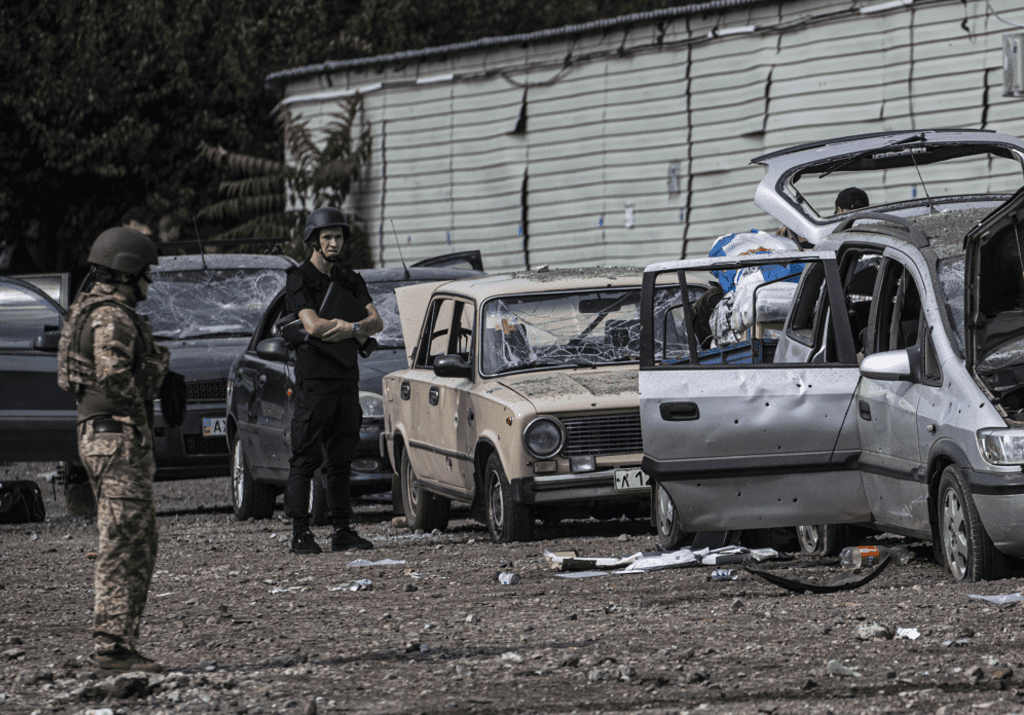
30 September
Ukraine: Missile attack on humanitarian convoy in Zaporizhzhia further proof of Russia’s ‘utter disregard for civilian lives’
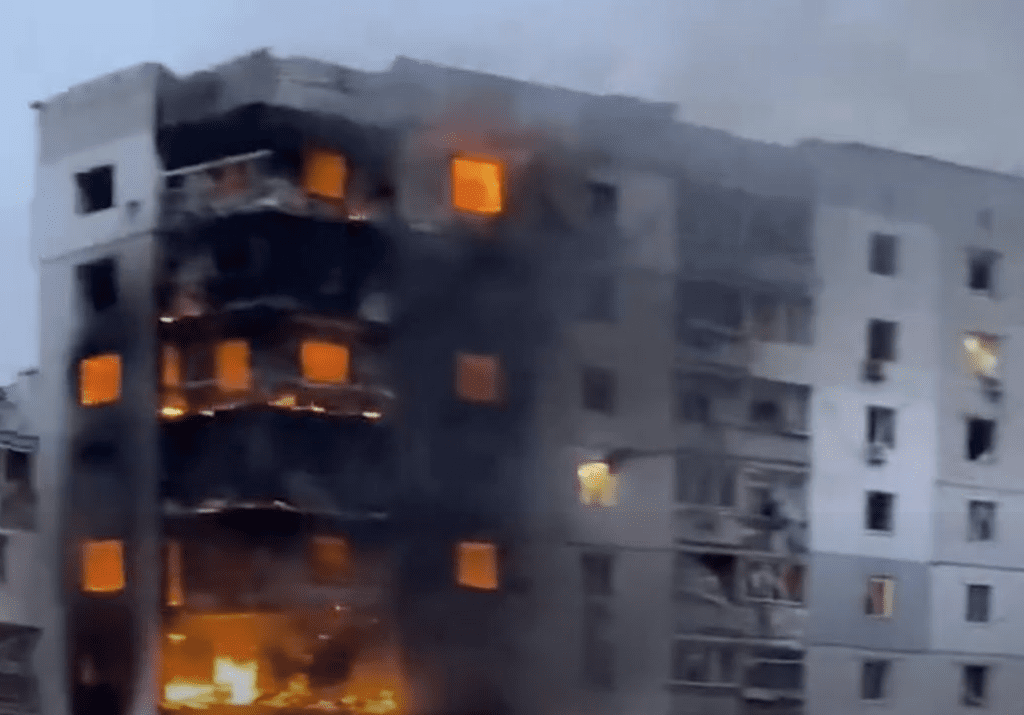
6 May
Ukraine: “He’s not coming back”. War Crimes in Northwest Areas of Kyiv Oblast
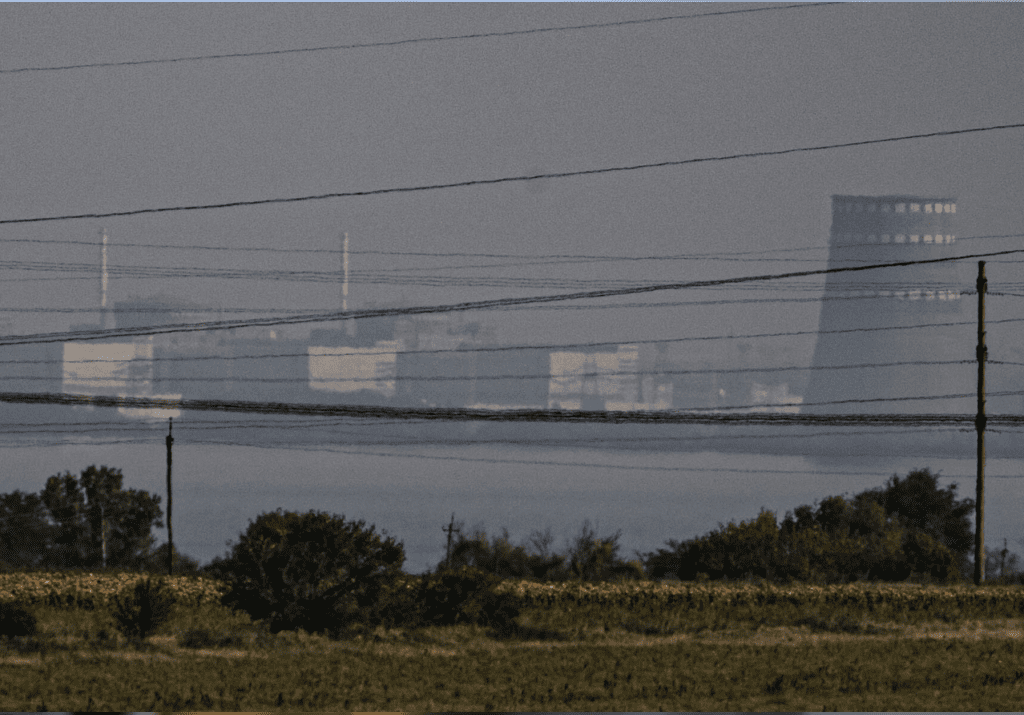
6 September
Ukraine: Russia’s military activities at nuclear plant risk safety in region
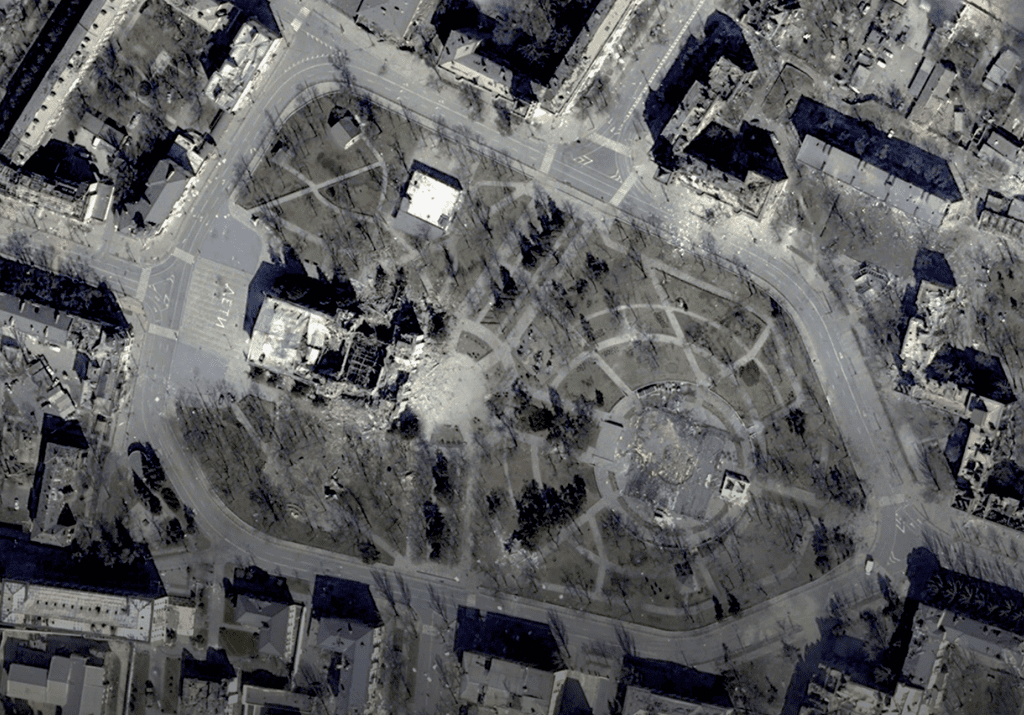
30 June
Ukraine: “Children”: The Attack on the Donetsk Regional Academic Drama Theatre in Mariupol
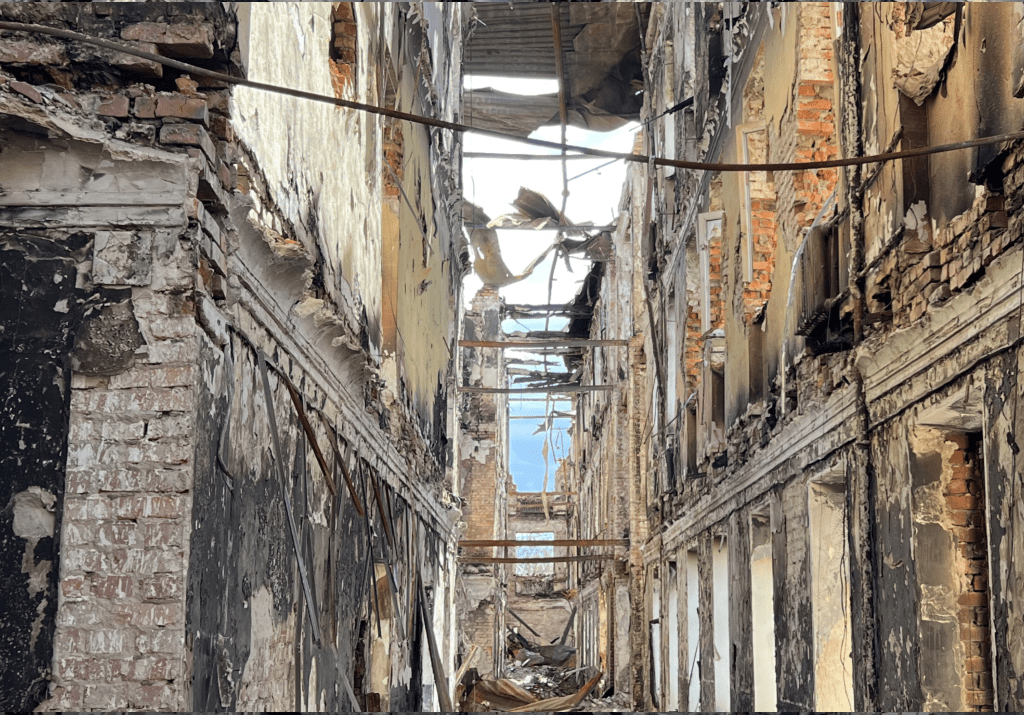
9 June
Ukraine/Russia: ‘Death sentences’ against three foreign members of Ukrainian forces by separatists’ ‘courts’ a blatant violation of international law
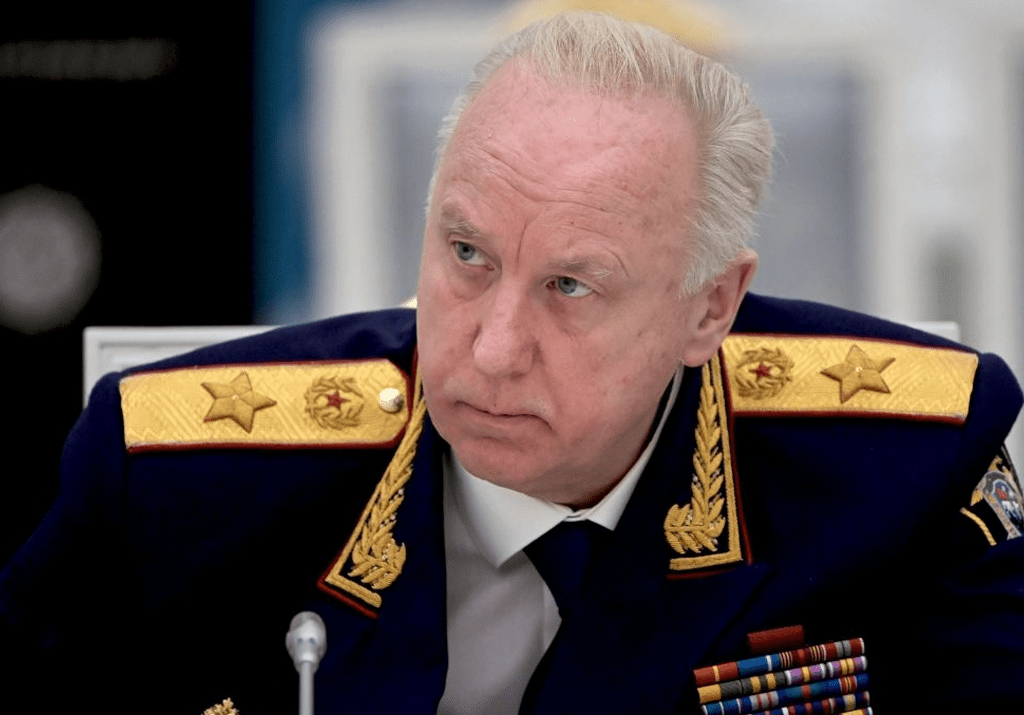
25 July
Russia: Charging 92 members of Ukraine’s military with ‘crimes against humanity’ brazenly undermines fair trial rights
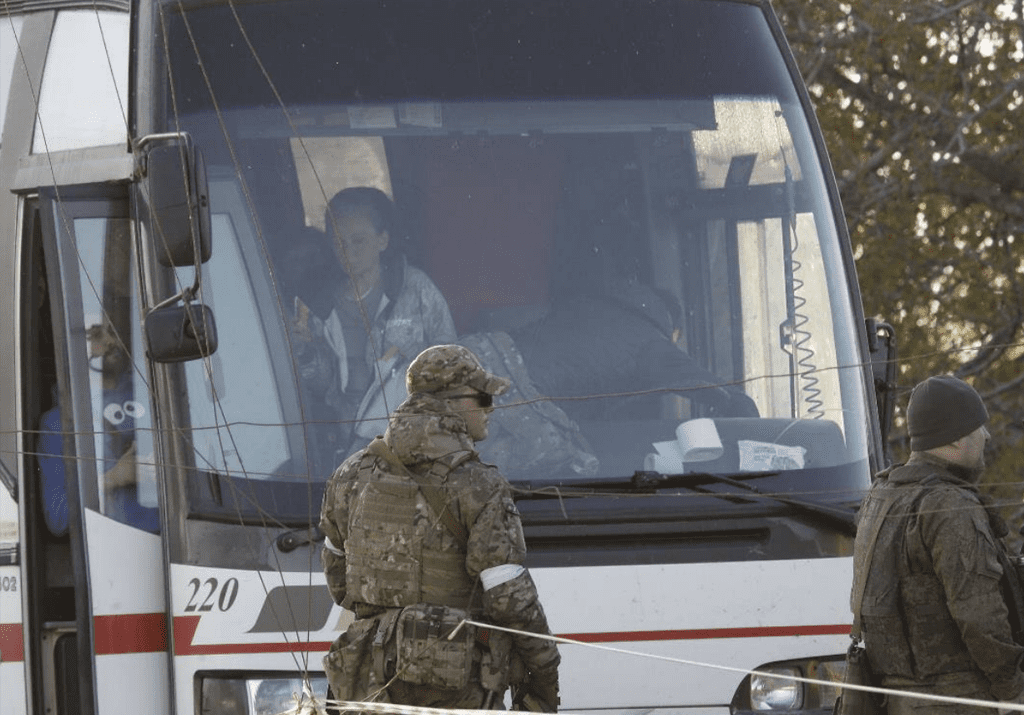
10 November
Ukraine: “Like a Prison Convoy”: Russia’s Unlawful Transfer of Civilians in Ukraine and Abuses During ‘Filtration
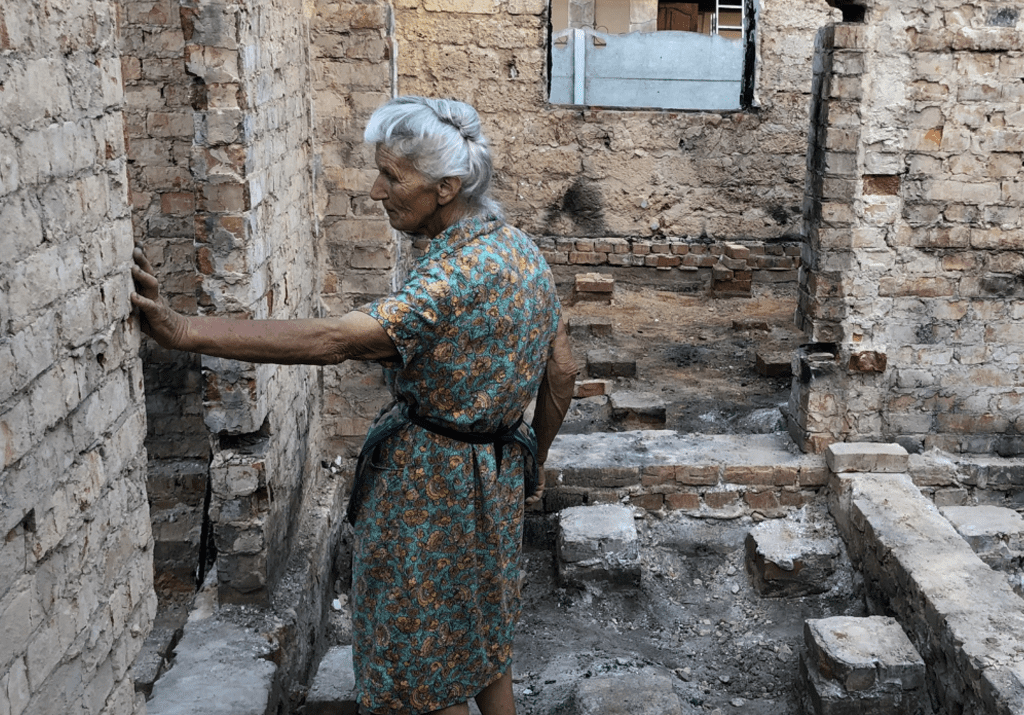
6 December
Ukraine: “I used to have a home”: Older People’s Experience of War, Displacement, and Access to Housing in Ukraine

22 August
Russia: Crimean human rights lawyers disbarred: Lilya Gemedzhi, Rustem Kyamilev and Nazim Sheikhmambetov

